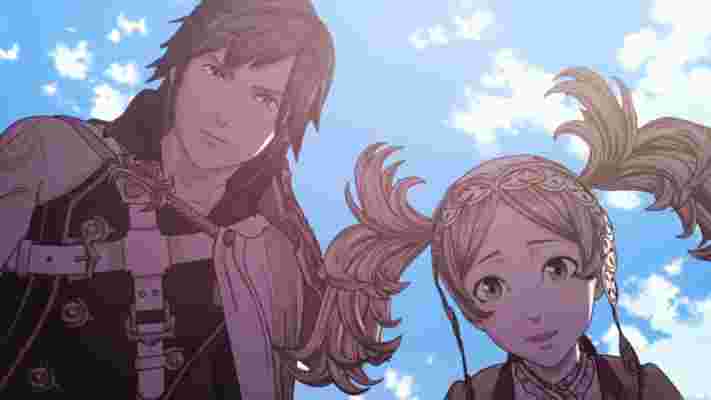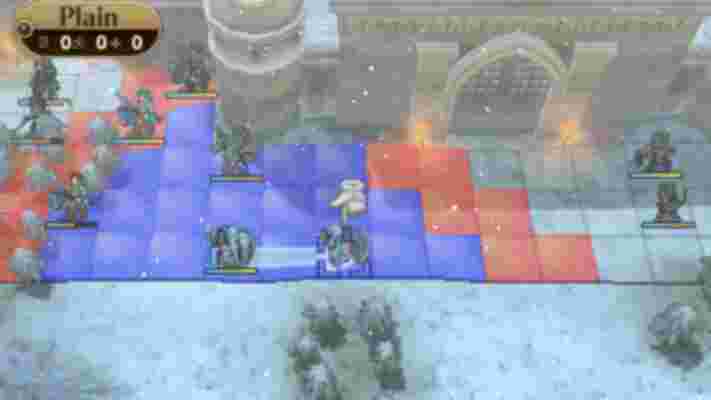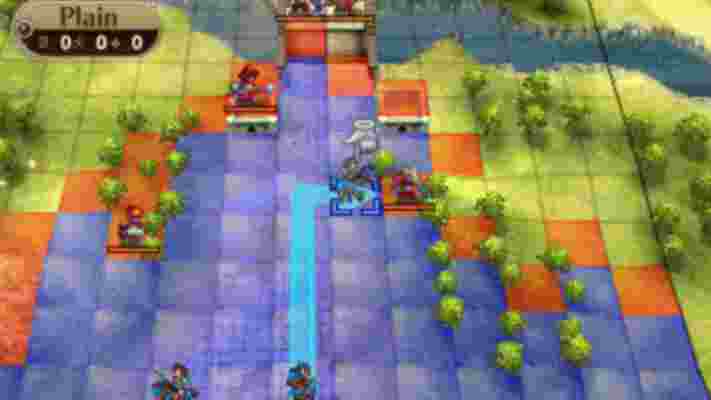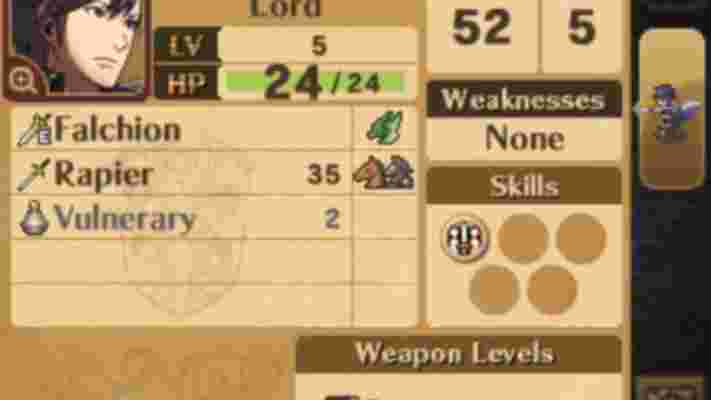Fire Emblem: Awakening review
With numerous releases spread over 20 plus years, you might think that the turn-based tactical combat series Fire Emblem would be impenetrably complex to newcomers by now. However, if you like the idea of shaping your own mini army of knights and wizards and then going to war across a continent, fighting your way through an epic storyline that crosses generations, with over 50 missions to complete, all beautifully presented and served up with a lovely side-helping of character and comedy, then you shouldn’t let that put you off.

Occasionally you get fully animated segments to move the plot along
Like so many great games, chess included, Fire Emblem: Awakening boils down to a simple grid of squares. Your units have the usual characteristics, they can move X spaces, hit for X damage and defend X amount when hit themselves. Each turn you move all your characters to attack the enemy, and then the AI takes its turn to attack you too. Back and forth until you are hopefully victorious.
It’s an immensely addictive game, and one that can be played for just a single turn - grabbed in a spare couple of minutes - or for hours at a time, at least until the 3DS’s poor ergonomics force you to stop due to hand cramp.
The AI isn’t crafty, in fact it’s incredibly predictable, but that doesn’t make things easy. Each turn is a like a tiny puzzle, where you need to take out some of the enemy while ensuring they can’t gang up on one of your more vulnerable units and take them out of the game. Solve that turn and the resulting position creates another puzzle, though this one is partly of your devising.

Surviving each turn is like its own little puzzle
Fail in your planning and someone will die pretty quickly. Play the game on the Hard setting, as it should be played, and character death is permanent. That character is gone and you can never use them again. Which means you’ll either have to press on without them, or load up that level from the beginning and try again.
We found that on some of the tougher missions, to preserve our sanity, we’d let let some of our less favourite characters go. Although that can then require you to rejig your remaining party to fill tactical gaps. You’ll have a lot more characters than there are slots in any one mission, so you won’t be down on manpower if you let a few die for the cause.
Usually such demanding gameplay can result in tedious square counting and menu checking but Fire Emblem: Awakening provides fantastic tools to minimise such tedium and let you concentrate on making actual decisions. You can bring up an overlay that shows your opponent’s attack ranges and even pick out individual enemies that particularly worry you.

The overlays make it very easy to see what's going on
All character stats are displayed on the lower screen, so you can simply tap them to bring up brief descriptions of what everything does. There’s also a built-in manual, so you can look up key concepts quickly and easily. Dig down and there’s plenty of depth, look online at some of the strategy guides to marvel at how seriously some take it, but it’s perfectly playable without such dedication.

Stats are clearly presented on the touchscreen
The key to success lies in managing your characters, both on and off the battlefield, to give them the best chance not only to live but also to thrive. As characters rise in level, you get the option to switch them to other classes, for example take a spell-slinging mage and make him a mounted magic-using knight. However, you must be careful to match the characters own talents with his new classes capabilities. There’s also plenty of weapons and spellbooks to equip your party with, many of which have special effects that will quickly take down certain enemies.
As units level up you'll need to choose how they fit into your team
As you progress, you’ll need to be careful to use most of your characters equally, as if you concentrate on only a handful of them the rest will quickly slip behind and be unable to compete in the latest missions. You can backtrack to previous locations though to fight new battles, which lets you bring such characters up to speed. There are also some great side missions which give you access to new and exciting characters for your army.
Characters on the battlefield can pair up in one square, with the supporting character giving hefty stat bonuses to the lead character, as well as providing additional strikes and parries in combat. You can pair characters to combine their common strengths - with two armoured warriors becoming near indestructible - or to offset their weaknesses - a wizard can provide much-needed magical defence for such a warrior.
Whenever a character undertakes an action on the battlefield, it increases the strength of the bond between them and the paired character - or characters adjacent to them. As these relationships build you get further bonuses to those characters fighting together; to mark these advancements the characters in question will have a short (and often humorous) conversation. If two characters of the opposite sex reach the top level ‘S’ level of such a relationship then they will get married!
Build a relationship on the battlefield and romance could blossom off it
These characters will then produce a single offspring who, through the machinations of the plot, joins your party to fight in future encounters. Their stats and class are based on their parents, so those with a liking for genetic manipulation will be able to engineer the next generation to their tastes.
The missions themselves are good, but we feel they could be a bit more varied. The environments are nicely varied, but more interactive elements could have been used to provide greater tactical variation. There could also have been a greater variety of enemies, with maybe multi-square giant monsters, long-range siege machines or more beasts rather than endless soldier variants.
There’s still plenty to think about though, and you’ll need to have a solid plan to hold back the enemy’s superior numbers. We were repeated irked by reinforcements appearing on the board with little warning, which can force you to replay missions, learning the danger spots by rote rather than tactically winning battles.
The presentation is absolutely top-notch. The characters appear in glorious anime-style cutscenes, on the battlefield as tiny sprites, and in brilliantly-animated battle scenes as they exchange blows with the enemy. All three art styles work well together, giving you a more rounded look at each character.
The battle graphics look great, with swish animations and spell effects
The 3D effect on the 3DS remains our favourite use of the technology. The battlefields have a model-like solidity to them, and give a definite sense of height in areas with varied terrain. It looks far better to the eyes than the screenshots here can possibly get across. One oddity is that none of the characters have feet, the developer said it was to save on the animation processing budget - a very odd choice, but you soon stop noticing.
Fire Emblem: Awakening is the most rounded turn-based fighting game we’ve played to date. There could be a bit more variation to the battles, but Fire Emblem: Awakening’s character development is a very addictive pastime in and of itself, you discover what works for you, learn more-and-more about the game as you play, and this process of self-discovery is very sweet.
Compare two player’s forces by the end of the campaign and you’ll find radical differences, with characters unrecognisable from each other in terms of their stats and battleground purpose. Finding out that someone completed the whole game without using a character you relied upon for every battle is a pleasant shock. If you have a 3DS you have to buy this game and if you haven’t but you loved games such as Advance Wars, then you should seriously consider picking one up.
Details | |
|---|---|
| Price | £33 |
| Details | www.nintendo.com |
| Rating | ***** |
